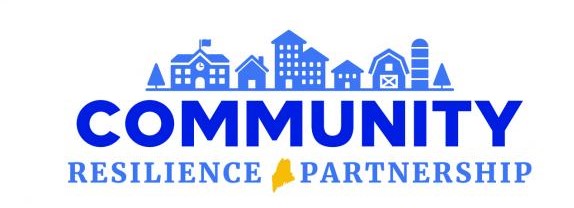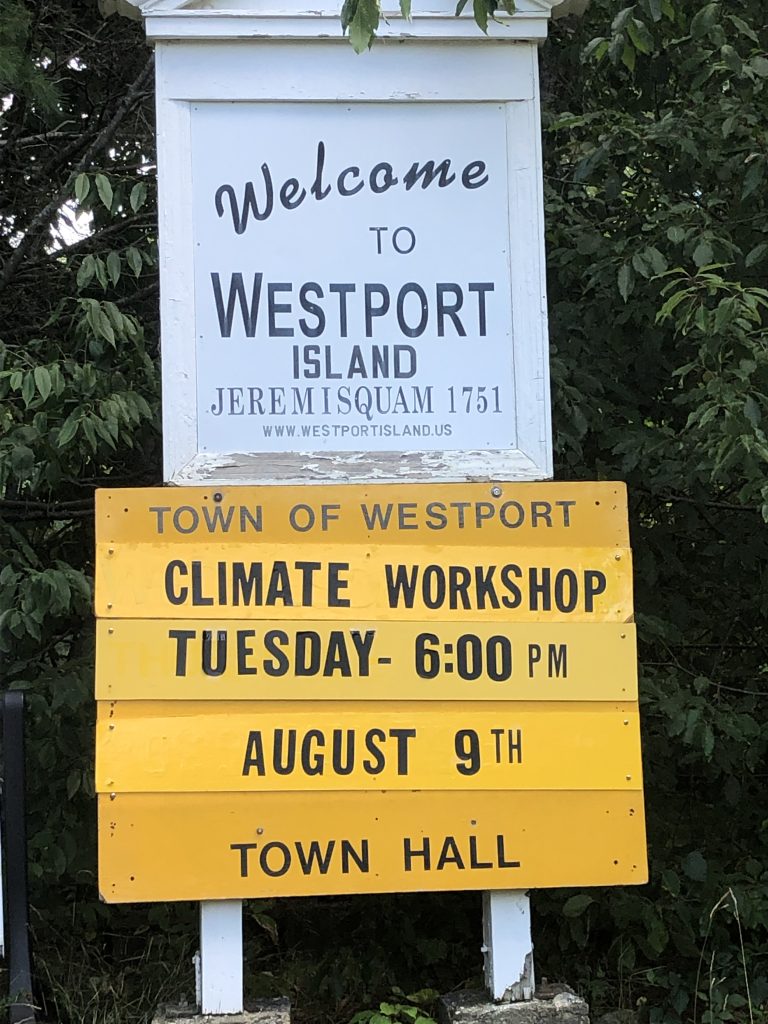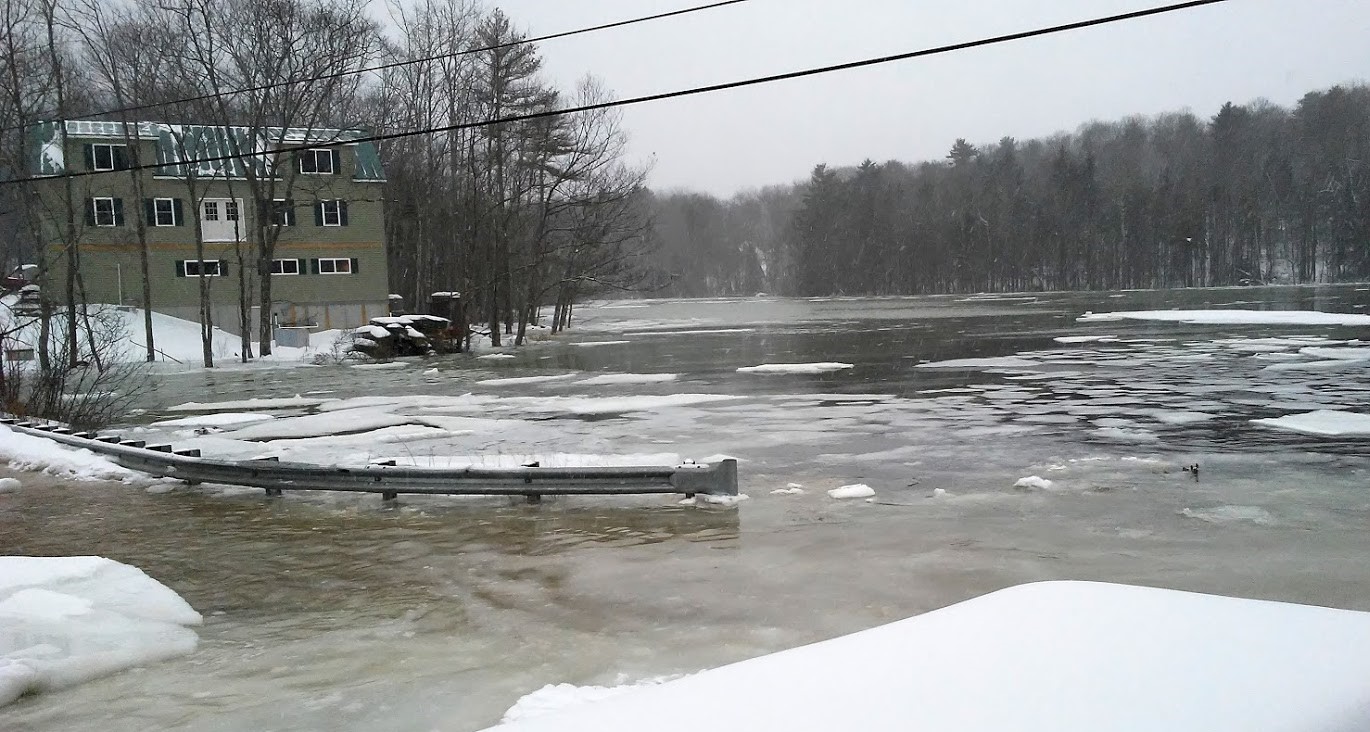Community Resilience Partnership
 The NEEFC is a service provider for Maine’s Community Resilience Partnership, a state-wide program helping towns and tribes reduce their carbon emissions, transition to clean energy, and become more resilient to the impacts of climate change, such as extreme weather, rising sea levels, and flooding. The Community Resilience Partnership is administered by the Maine Governor’s Office of Policy Innovation and the Future.
The NEEFC is a service provider for Maine’s Community Resilience Partnership, a state-wide program helping towns and tribes reduce their carbon emissions, transition to clean energy, and become more resilient to the impacts of climate change, such as extreme weather, rising sea levels, and flooding. The Community Resilience Partnership is administered by the Maine Governor’s Office of Policy Innovation and the Future.
As a service provider, the NEEFC works with municipal representatives to better understand the local impacts of climate change and what they can do to prepare and adapt. We guide communities through the enrollment process, including adopting a municipal resolution, completing self assessments, and holding a community workshop to prioritize climate mitigation and adaptation projects for implementation. Once enrolled, the NEEFC works with communities to secure project funding by helping them apply for Community Action Grants, as well as providing direction on other federal and state funding opportunities.
The Community Resilience Partnership encourages regional collaboration and projects that advance shared priorities across town lines. The NEEFC partners with groups of 2-5 communities with geographic proximity or other shared characteristics to work through the enrollment process together. If your community would like support enrolling in the Community Resilience Partnership, please Contact Us.
2022 Community Resilience Partnership Service Provider Grant – Southern Midcoast Communities
NEEFC, in collaboration with Casco Bay Estuary Partnership and Kennebec Estuary Land Trust, helped five neighboring coastal towns – Arrowsic, Georgetown, Phippsburg, Westport Island, and Woolwich – identify community climate priorities during a series of workshops in summer 2022 and apply for state funding of up to $50,000 per community project. All four towns that submitted grant proposals were successful. Grants were awarded in December 2022 and projects will be completed in the next 1-2 years.
- Arrowsic ($35,000) – Arrowsic Climate Action and Outreach Plan: Establish a stakeholder committee; conduct a community vulnerability assessment; adopt a climate resilience plan; create an outreach program.
- Georgetown ($39,000) – Georgetown Level Three Energy Assessment & Plan for Town Buildings: Energy assessment of town office, central school, fire station, town owned First Church building, and community center; education with school and community; recommendations and plan to select board for adoption.
- Westport Island ($48,500) – Planning for Ground Water During Climate Change in Westport: Well survey, water quality testing, well geodatabase; analysis of recharge, saltwater intrusion potential, land use guidance; Aquifer monitoring, salinity monitoring, long-term water supply planning; community engagement.
- Woolwich ($10,900) – Increasing Emergency Preparedness in Woolwich: Improve communications to support public health, early warnings, and response; update local hazard mitigation plan.

2021 Community Resilience Pilot Project – Coastal Cohort
NEEFC, in collaboration with the Casco Bay Estuary Partnership (CBEP), piloted this program with the coastal towns of Harpswell, Phippsburg, and West Bath. As small, peninsular communities reliant on natural resource economies and home to aging populations, town administrators sought to better understand climate impacts like sea level rise, storm surge, flooding, and erosion and relevant adaptation strategies and funding sources.
Over six months, NEEFC and CBEP held a three-part workshop series to identify community assets (physical, ecological, social), understand local climate-related hazards, vulnerabilities, and risks affecting those assets, and brainstorm and prioritize actions that build resilience. Workshops included opportunities to hear directly from community members representing conservation commissions, land trusts, and the shellfishing industry, as well as guest speakers on technical, scientific, planning, and funding-related topics and approaches.
Participating in this facilitated process formed new relationships and established a foundation for regional collaboration, which led the three towns to craft a joint proposal for funding to advance shared priorities. The coastal cohort successfully secured funds from the Maine Governor’s Office of Policy Innovation and the Future for engineering services to assess three town landings/wharves and their vulnerability to current and projected sea level rise, storm surge, and King tide events to inform a maintenance and upgrade plan for improved resilience.

Participating in this facilitated process formed new relationships and established a foundation for regional collaboration, which led the three towns to craft a joint proposal for funding to advance shared priorities. The coastal cohort successfully secured funds from the Maine Governor’s Office of Policy Innovation and the Future for engineering services to assess three town landings/wharves and their vulnerability to current and projected sea level rise, storm surge, and King tide events to inform a maintenance and upgrade plan for improved resilience.